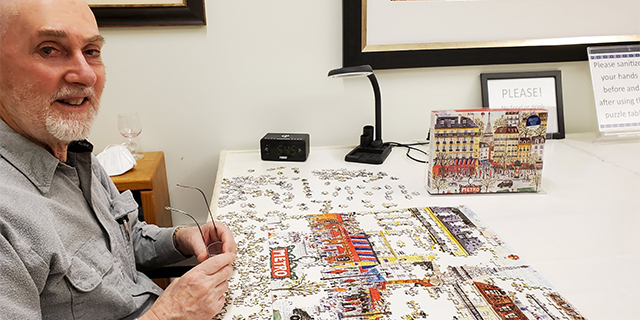
LIFELONG LEARNING AND THE VALUE OF STAYING CURIOUS FOR MENTAL HEALTH
Curiosity is a natural part of human development. It is how children learn and grow and it helps us continue to thrive throughout our lives. People who stay curious tend to have more appreciation of novelty and a strong desire to explore, discover, and grow. It’s no wonder studies show the value of curiosity and lifelong learning for mental health, particularly as we age. Staying curious, and embracing an attitude of lifelong learning, is associated with with better memory and overall well-being, particularly for seniors and the elderly.
Studies show that our openness to new experiences and learning new information declines as we age, so it is important to be mindful of maintaining our curiosity. Now that we know how important curiosity is, why not look for fun ways to exercise your curiosity? (Also: See 9 Tips for Healthy Aging.)
When we socialize, we can engage our curiosity by asking questions and actively listening to what is being said, rather than waiting for our turn to talk. Being genuinely interested and asking questions prevents us from making generalizations, thus improving our communication skills and quality of relationships. These types of conversations with people from different generations and backgrounds helps us gain greater understanding about them and their life experiences. By understanding the perspectives of others, we gain greater understanding of ourselves and how we view our greater world. That’s what lifelong learning is all about: continuing to grow. And that has major benefits for our mental health.
Curiosity increases our vitality by keeping our mind open and flexible. This helps us to recognize possibilities in our life, which support us in our ability to weather life’s storms. Also, being curious supports our mentally agility, allowing us to be lifelong learners. When we search for new knowledge and experiences we continue to grow intellectually. Lifelong learning allows us to expand our world beyond what we know, and see the bigger picture. Seeing the big picture makes it easier to put our fears into perspective. Worry and anxiety often come from a sense that we don’t understand people and situations, which can create animosity. The best way to go beyond this is to embrace curiosity and understand that how we see the world is based on our personal experiences. If we want things to be different, we need to think differently.
Let your curiosity create a sense of hopefulness and adventure; be empowered by the knowledge that you can make your life better. Use your curiosity to create more positive relationships and a greater sense of happiness. This will support your resilience and give you more skills to handle life’s challenges. Keeping curiosity alive can challenge our preconceived ideas about ourselves and the world around us. Being an open, curious person is linked to better health. How will you stay curios for mental health and to maintain your well-being?
